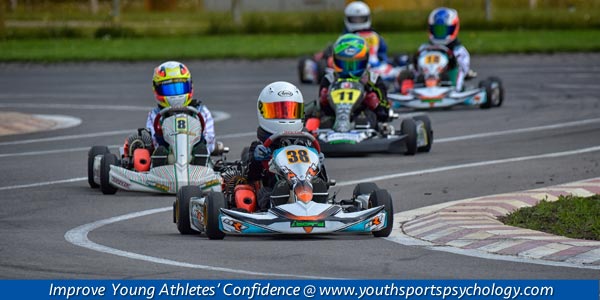Young Athletes And Keeping Composure
As sports parents, it’s your job to understand anger management.
That’s because anger erupts too often on the field or in the gym—and it’s always disruptive and destructive.
That’s the word from Joe Bouffard, director of the Youth Football Coaches Association, a group that teaches coaches—among other things—how to handle anger in youth sports.
“Unfortunately, anger management needs to be addressed in all aspects of youth sports. There are a lot of negative things being revealed in the media. Coaches are often yelling, and parents are negative,” he says.
First of all, coaches need to understand why kids get angry, he says. That means asking their athletes the right questions. Parents can help in this process by filling in coaches about their own kids’ triggers and background.
“We have to figure out what makes each kid work and how to diffuse them if they get too hot. These wires could be triggered by issues at home, problems at school, or missing their medication.”
“There is a lot that we as coaches have to be aware of with these kids,” he says. “Kids will be kids and coaches have to be able to handle their individuality and their reactions.”
Bouffard’s association suggests coaches call for a pre-season meeting. Coaches should ask young athletes to write down their goals. These provide critical clues about why certain kids might be more likely to become angry.
“You can begin to understand where these kids are coming from and why they are the way they are,” he says.
It’s also important for coaches to understand parents’ goals.
“If parents want their 8-year-old to win the Heisman Trophy, I know I have to handle these parents delicately and get them to understand what youth sports are about,” he says.
Here at Kids’ Sports Psychology and the Ultimate Sports Parent, we’ve found that kids with high expectations—whether these expectations come from parents or from the kids themselves—are more likely to get angry. If they can’t achieve their own high standards, they get frustrated and angry.
One way to help these young athletes with high expectations is to tell them it’s okay to make mistakes,” says Bouffard.
If the young athlete keeps making the mistake, coaches can try to find a different way to help the athlete. For example, the athlete may need to learn by watching a video, or by talking with the coach after practice.
One example: “My quarterback threw an interception. I told him to shake it off but I could tell he was still thinking about it. He wanted to be perfect. I had to tell him that it is okay to make mistakes. I could see he was obsessing over the mistake and it wouldn’t help to dwell on it for the rest of the game,” he says.
High expectations undermine players’ performance in many ways.
If they become frustrated or angry, they don’t perform well. Their confidence suffers. To help kids with high expectations, start with your own expectations. Are they too high? Are you pushing on your children some of your own dreams?
Also, be careful what you tell them just before they perform. Even if you’re kidding when you say, “Go out there and score nine goals,” they might take you seriously and take this goal on as their own! It’s best to say, “Go out there and have fun.”
Related Articles on Kids’ Mental Game:
- How to Set Standards of Excellence for Young Athletes
- When Youth Sports Feels Toxic, Athletes Need These Skills
- How Sports Kids’ Mental Game Affects College Recruitment
*Subscribe to The Sports Psychology Podcast on iTunes
*Subscribe to The Sports Psychology Podcast on Spotify
The Composed Sports Kid

“The Composed Sports Kid” audio and workbook digital download program for young athletes and their parents or coach helps kids cope with frustration and anger in sports. Help your sports kids learn how to manage expectations and let go of mistakes so they can keep their head in the game.
The Composed Sports Kid system is really two programs in one–one program to train parents and coaches how to help their kids practice composure, and one program that teaches young athletes–ages 6 to 13–how to improve composure, let go of mistakes quickly, have more self-acceptance, and thus enjoy sports more!

